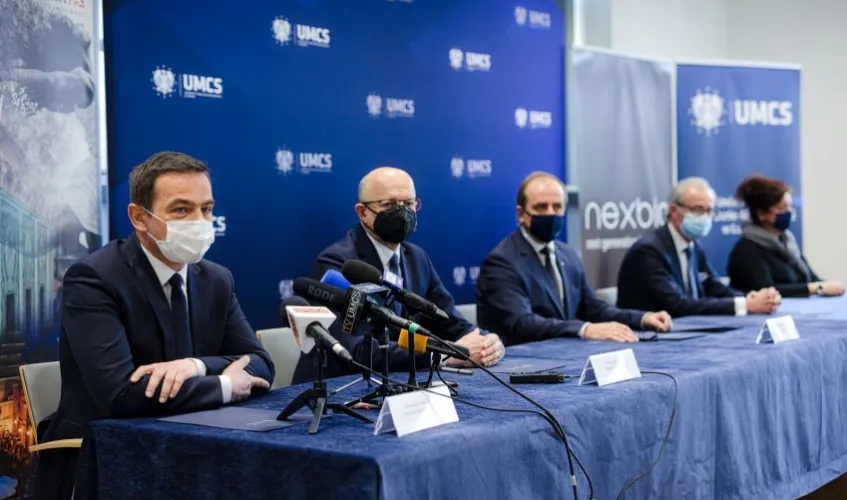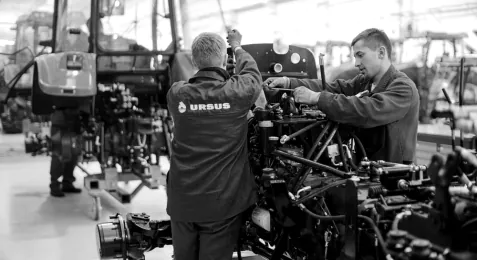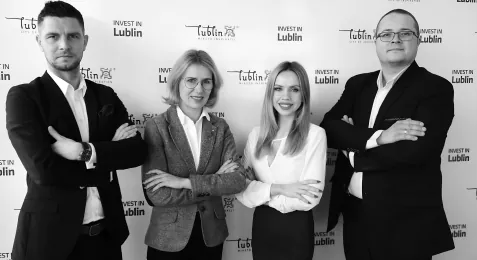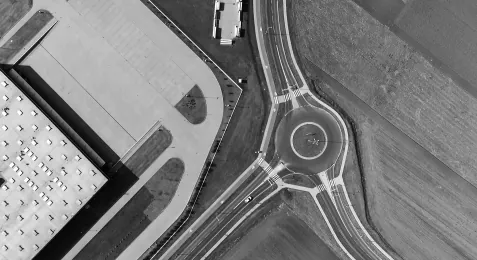Lublin Info Centre
R&D collaboration to curtail coronavirus spread

At a press conference held at Eco-tech Complex, Mayor of Lublin Krzysztof Żuk referred to the great opportunity that is offered by the cooperation between all entities involved in this project.
“I am sure that the cooperation between the City of Lublin, UMCS, MPWiK and Nexbio will create the effect of synergy for all the project partners. When we think about the intensive and innovative development of our city, we must remember about the importance of collaboration between the local government, science and business. As the city’s authorities, we prove that on the one hand we can be the initiator of such projects, and on the other hand, the beneficiary of the results of scientific research conducted at Lublin universities (…). By working together, we have a chance to utilise the great potential of all stakeholders, at the same time stimulating the demand for specific qualifications and skills among graduates and involving potential employers in the education process at Lublin’s universities.”
The technology of detecting coronavirus in sewage was developed by Lublin-based Nexbio, which deals with the analysis of nucleic acids, including the identification, genotyping, ribotyping and gene expression analysis.
“Sewage is a very difficult material when it comes to performing this type of research and, therefore, before we told you about it, we wanted to make sure that this method is reliable, that we can do it and that the results will be valuable. We have completed a pilot stage and now have the confirmation that we can do it- we have the method, the tools and the necessary knowledge to study the coronavirus in sewage” explains Maciej Maniecki, CEO of Nexbio.
The project results are expected to have an impact on the entire society, especially at the time of the coronavirus pandemic. It will allow local authorities to appropriately respond to arising threats, for instance to close a specific school or an office building rather the whole area once a coronavirus outbreak is detected.
The research will be carried out at the UMCS Institute of Biological Sciences under the supervision of prof. Agnieszka Szuster-Ciesielska.
“We are looking forward to this cooperation. We offer our own substantive and intellectual capabilities, as well as a machine park, equipment, thanks to which it will be possible to monitor not only virological, but also toxicological data”, says prof. Agnieszka Szuster-Ciesielska.
According to the consortium members, the sewage monitoring system should be developed within the next few months. It is worth noting that this is the first initiative of this kind in Poland and one of the first in Europe. Furthermore, the parties involved in the project, after its implementation, wish to continue collaboration and carry out research on the potential correlation between the increase in COVID-19 infections and changes in temperature, or microbiological monitoring of wastewater and metabolites of drugs and psychoactive substances among the citizens of Lublin.
Photograph by Bartosz Proll, UMCS






